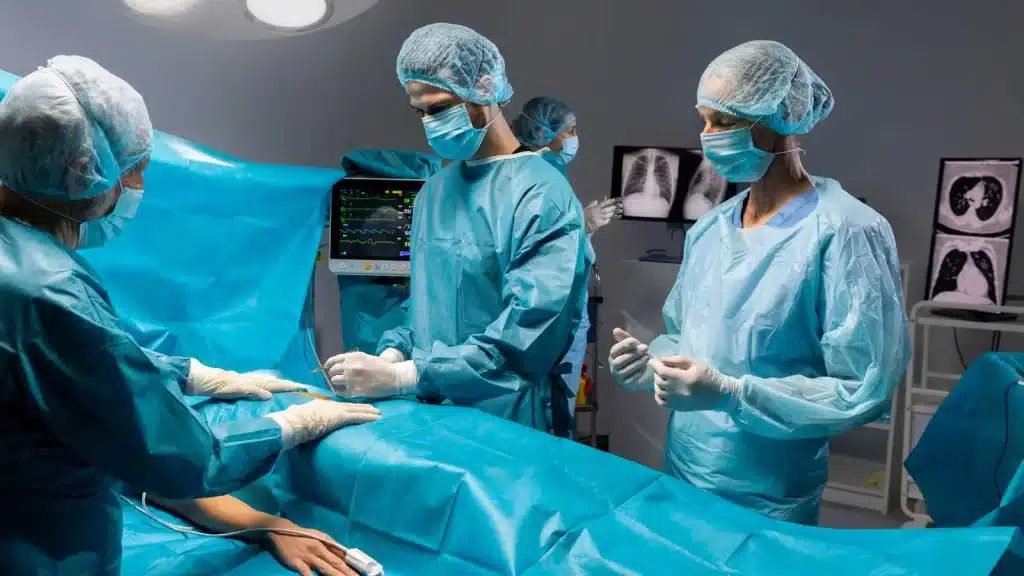Sigmoidoscopy
What Is Sigmoidoscopy?
Sigmoidoscopy is a diagnostic procedure used to examine the sigmoid colon, the lower part of the large intestine near the anus and rectum. Using a flexible tube equipped with a camera, this procedure helps detect and address issues in the lower gastrointestinal (GI) tract.
What Can Sigmoidoscopy Diagnose?
Sigmoidoscopy is essential for diagnosing:
- Diarrhea
- Belly pain
- Constipation
- Polyps (abnormal growths)
- Bleeding
It also allows:
- Tissue sampling (biopsy) for suspected carcinoma or other diseases.
- Excision of abnormal growths.
Additionally, it serves as a screening tool for colon and rectal cancer, particularly for individuals over 50 years of age.
Why Is Sigmoidoscopy Recommended?
This procedure helps identify:
- Polyps
- Tumors
- Ulcers (sores)
- Inflammation (redness and swelling)
- Hemorrhoids
- Diverticula (pouches on the colon wall)
- Strictures (narrowing of the lower colon)
It also investigates:
- Changes in bowel habits.
- Lower abdominal pain.
- Anal itching.
- Blood or mucus in stools.
- Low iron levels or blood counts.

Preparation for Sigmoidoscopy
Bowel Preparation:
- The paramedical team ensures the bowel is clear for examination.
- Dietary and fasting instructions are provided.
Inform Your Physician If You Have:
- Pregnancy.
- Allergies to medications.
- Existing comorbidities (e.g., diabetes, hypertension).
- Bleeding disorders or are on anticoagulant therapy.
During the Procedure
Setup and Positioning:
- Performed in a hospital or ambulatory setting.
- The patient lies on their left side with legs pulled toward the chest.
Procedure:
- A rectal examination checks for blood, mucus, or stool.
- The sigmoidoscope is inserted through the anus.
- Air is introduced to expand the colon for better visibility.
- The physician may perform biopsies, remove polyps, or stop bleeding using small instruments.
After the Procedure
- Rest briefly before standing to avoid dizziness.
- Normal routines and diet can typically resume immediately.
- Some bleeding during bowel movements after a biopsy is normal.
- Gas, bloating, or mild abdominal pain may occur but generally subsides quickly.
Side Effects and Risks
Common Side Effects:
- Cramping or discomfort in the lower abdomen.
- Gas or bloating.
- Minor rectal bleeding.
Rare Complications:
- Puncture of the colon (may require surgical correction).
Findings and Next Steps
Abnormal Outcomes May Indicate:
- Hemorrhoids.
- Polyps.
- Diverticulosis.
- Inflammatory bowel diseases, such as ulcerative colitis.
- Colon or rectal cancer.
If abnormalities are found, further procedures or treatments may be advised.
When to Seek Medical Attention
Contact your physician immediately if you experience:
- Severe abdominal pain.
- Fever.
- Persistent rectal bleeding.
- Dizziness or weakness.
Why Choose Sahaj Hospital for Sigmoidoscopy?
- Expert Diagnostics: Highly skilled specialists with a patient-focused approach.
- Advanced Technology: Cutting-edge equipment ensures accurate diagnosis and minimal discomfort.
- Compassionate Care: Comprehensive support from preparation to recovery.
Discover the leading sigmoidoscopy test center in Indore for reliable diagnosis and exceptional care. Schedule your appointment at Sahaj Hospital today!
